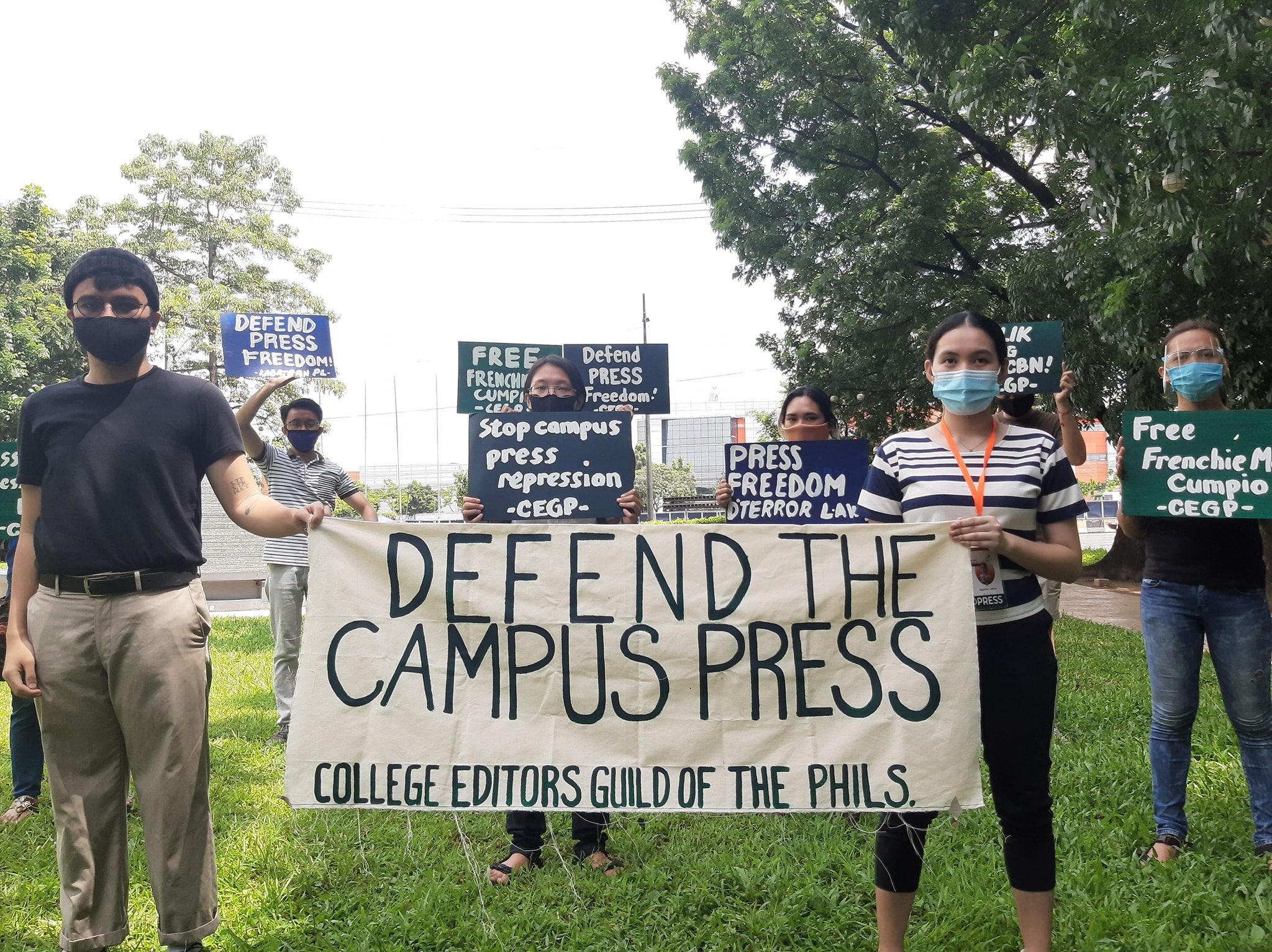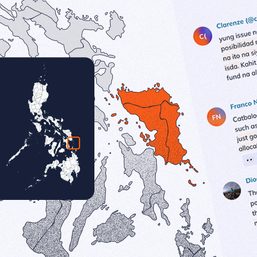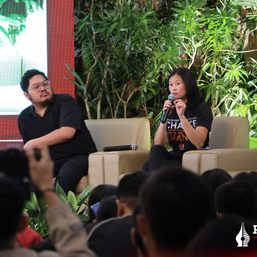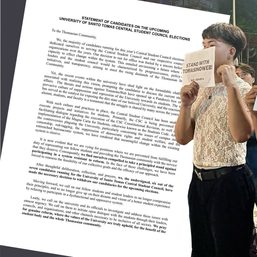SUMMARY
This is AI generated summarization, which may have errors. For context, always refer to the full article.

Press freedom is also under attack in college campuses under the administration of President Rodrigo Duterte, according to youth activists.
In a Rappler Talk interview on Wednesday, July 29, Youth Act Now Against Tyranny (YANAT) deputy spokesperson Hannah Cartagena shared that campus publications have been facing more threats and repression from their colleges since Duterte assumed office in 2016..
“The publications are no longer given a budget and threatened to be closed by their administration because of critical publication,” Cartagena said.
While local and global observers and rights groups have noted increased attacks against mainstream media in the country, campus press freedom advocates say campus publications are experiencing the same thing.
“We see that whatever is happening in the university is also happening in the nation or outside because universities are microcosms of the nation,” Cartagena said in Cebuano.
“The fact that the university publication is being silenced because of the critical publications against the university admins, what more now when they’ll be talking about issues outside of the university?” she added.
Numerous student publications and coordinators of the College Editorial Guild of the Philippines (CEGP) in Cebu have opened up about being threatened or intimidated over their critical reporting of campus and community issues.
“We see the intimidation and fears of university publications by their admins to be critical. So that’s what is scary about now, that’s somewhat like a trend with student publications,” CEGP Cebu reported.
The campus press has played a critical role in standing up against the repression of free expression since Martial Law during the Marcos dictatorship. (READ: Why campus journalists should go beyond classrooms)
Similarly, many campus publications have been taking their coverage to issues beyond campus walls and have taken heat for reporting on community issues as well.
In March, Cebu Governor Gwendolyn Garcia publicly denounced the University of San Carlos’ Today’s Carolinian for its editorial criticizing her for creating a special unit to track down netizens who slammed her COVID-19 response online.
There have been at least 1,000 violations against campus press freedom since 2010, according to a complaint filed by the College Editors Guild of the Philippines before the Commission on Human Rights (CHR) on Friday, July 24.
In August 2019, President Rodrigo Duterte signed Republic Act No. 11440, designating July 25 as “National Campus Press Freedom Day.” He signed the law as his government fended off acccusations of intimidating campus journalists and student publications as part of a government crackdown on communists.
The measure said that safeguarding campus journalism is part of the government’s role in protecting the “constitutionally-guaranteed right to freedom of expression, speech, and the press.”
CHR spokesperson Jacqueline de Guia said, however, that when the law was signed, “the reality in many key universities was in stark contrast to what the law aspires to cultivate.”
“It was signed at a time when campus journalism and student protests were confronted with intimidation and harassment and universities were labeled as breeding and recruiting grounds for rebels and subversives,” De Guia said.
“A year since its declaration, the state of press freedom, including campus journalism, continues to regress,” she added.
Cartegena said that while Duterte had a huge youth support base during his presidential campaign and the early part of his presidency, that support has now eroded 4 years into his term. Now, she said, students on many campuses mostly feel afraid.
“In his regime, instead of empowering youth, what he’s giving us is fear. We are afraid to express dissent because of the way he silenced people, especially us,” Cartagena said. – Rappler.com
Add a comment
How does this make you feel?


![[Be The Good] Talking AI between ridge and reef](https://www.rappler.com/tachyon/2024/04/Talking-AI-between-ridge-and-reef.jpg?resize=257%2C257&crop=270px%2C0px%2C720px%2C720px)


There are no comments yet. Add your comment to start the conversation.